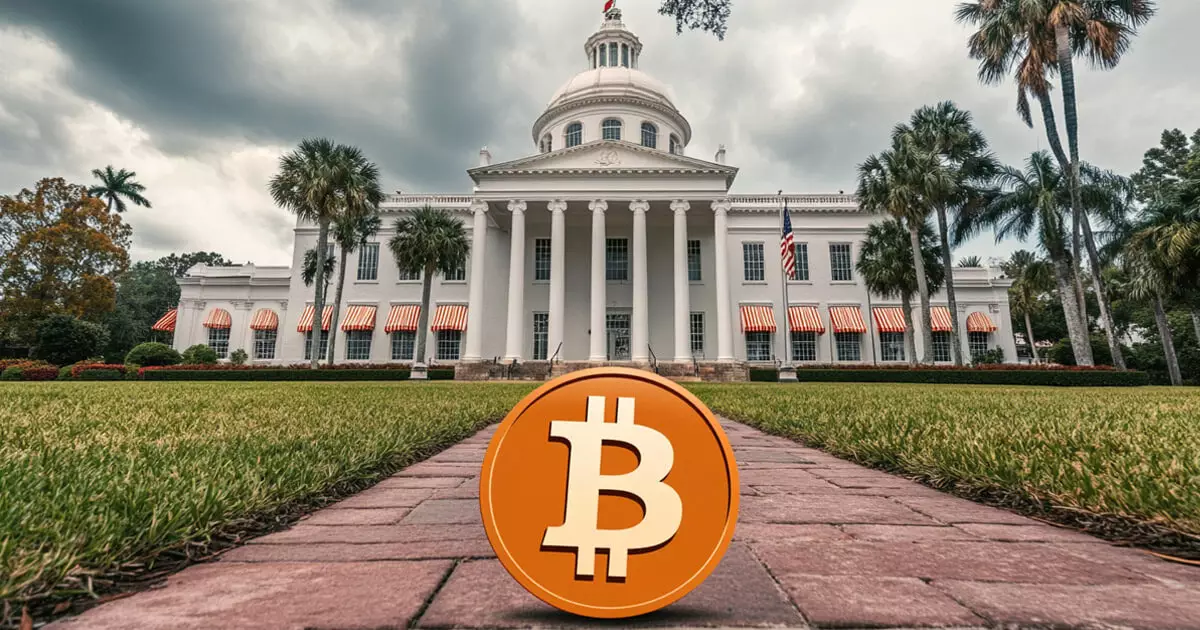Amidst the shifting sands of global finance, Florida is positioning itself as a beacon for Bitcoin integration, capturing the attention of both enthusiasts and skeptics alike. The initiative led by Senator Joe Gruters symbolizes more than just a legislative maneuver; it’s a declaration of intent for the state. By allowing the allocation of up to 10% of state funds—particularly from pension reserves—to Bitcoin, Florida aims to protect itself from inflation while steering clear of federal overreach. This bold step demonstrates a firm grasp of the understanding that financial autonomy is not merely desirable but essential in our increasingly uncertain economic landscape.
Legislative Ambition or Political Posturing?
While the attractiveness of Bitcoin as an investment vehicle is undeniable, skepticism arises regarding Gruters’ broader political motivations. Tied to a larger narrative of “freedom,” the senator’s push for Bitcoin can appear to be a slick marketing ploy under the guise of fiscal responsibility. The notion that Bitcoin adoption is about more than profit—it’s about preserving individual liberties—is compelling, but it deserves scrutiny. Are we genuinely moving towards greater financial independence, or merely handing significant power to entities that are not traditionally accountable to the voters who elect them?
Florida’s new legislation, Bill S0550, is presented as a preventative measure against inflation and as an opportunity to embrace cryptocurrency. However, the risks associated with allowing a substantial portion of public funds to be placed in the notoriously volatile crypto market raise eyebrows. The challenge is walking the line between being a progressive haven while ensuring that the financial well-being of public employees is not sacrificed on the altar of market speculation.
From Red State to Crypto Hub: A Transformation
What makes Florida’s move particularly intriguing is its juxtaposition against the backdrop of traditional Republican values. Gruters has positioned Bitcoin as a key pillar of economic policy, aligning with sentiments that have emerged strongly during and after the pandemic. By branding the state as a “pro-freedom” zone, Florida is straddling the line between fiscal conservatism and digital progressivism—a gambit that could attract a new wave of residents, dubbed as “economic refugees.” However, will this attract a sustainable economic model or merely a fleeting fad?
While the allure of being termed America’s “Bitcoin capital” is one that Gruters wears proudly, it comes with its set of challenges. For Bitcoin to be successfully integrated into Florida’s financial architecture, there will need to be robust regulatory frameworks. A lack of responsible oversight could lead to devastating financial consequences for the very pensioners the bill aims to protect.
Error in Execution: Challenging Traditional Views
Gruters’ portrayal of Bitcoin as a freedom-enhancing asset is undoubtedly appealing, tapping into a growing appetite for decentralization; however, it risks dismissing the complexities of a currency reliant on speculative excess. The conventional financial world has long viewed cryptocurrencies with suspicion—a sentiment that will not vanish overnight. Consequently, the transition toward Bitcoin-centric governance must be navigated carefully, lest it jeopardize the integrity of Florida’s fiscal policies.
Recent endorsements from high-profile figures, including the former president, suggest a thirst for legitimacy. Yet the question remains: can political endorsements truly lend the kind of stability needed for such a volatile investment? Senator Gruters must address these doubts with palpable policy measures, rather than basing reputations solely on celebrity backing.
The Long Game: Sustainability in Bitcoin Investment
It is vital to recognize that even if Florida embarks on this ambitious venture now, sustainability will be pivotal. The cryptocurrencies’ notoriously fluctuating nature means that careful planning and risk management will be of utmost importance. The crux of the matter lies not merely in the adoption of Bitcoin, but in weaving it effectively into the existing economic fabric without causing unintended disruptions.
Gruters’ optimism stems from a belief that Florida could act as a guiding light for other states. However, leading the charge does not absolve one of the responsibility to ensure that the citizens are safeguarded from the potential pitfalls of such a course. Ensuring clarity in regulatory environments and serving the public’s trust should be front and center of Florida’s crypto ambitions, as many will be watching to see whether the state fulfills its promise of financial autonomy and sustainability.















